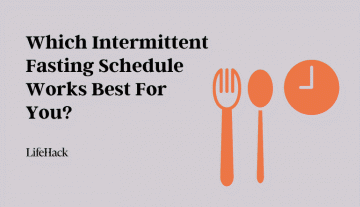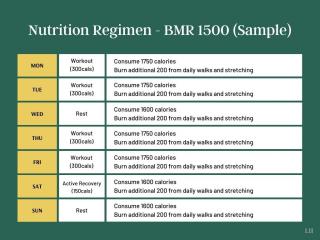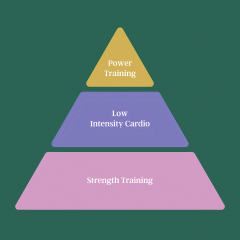When you’re feeling drained, do you feel that it’s a more physical or mental (emotional) thing?
Feeling drained is ultimately a wake-up call.
The three steps in this article will help you understand how, and create the best way to reboot your energy. By practicing these, you can avoid feeling drained in the future.
Studies in the psychology of mind and the practical experience I have gained working with hundreds of different people have shown me that feeling drained comes as a result of a disequilibrium between physical and mental energy.
Whether it comes from conflicts with your boss, friends, family members, or your idea or opinion about your self-worth, society, or life in general, you create a disequilibrium between these two energies. As a result, your nervous system produces chemical reactions (hormones) that impact your body’s physiology, which in turn will wear and tear your body to a point of exhaustion.
The process of wear and tear is natural and at the same time highly beneficial as it can teach us how to manage our physical and mental wellbeing.
Physical and Mental Wellbeing
Are you neglecting your mental and physical wellbeing by focusing too much of your energy (thoughts and actions) on insignificant things?
Since you’re feel drained, the answer is yes. You’re left with no energy and feeling tired and exhausted. Feeling drained is a wake-up call to slow down, reconsider your approach to external events and how you engage with them.
Take your condition of being exhausted and these three steps in this article very seriously. They’ll motivate you and help you reboot your energy, learn about yourself, and use your capabilities wisely.
Why You Feel Drained
There must be something that permanently withdraws your physical and mental energy. Sometimes you can identify what it is, but when you’re feeling tired, it can be difficult to do so. Engaging in activities where we don’t have to put much effort or creative thinking becomes a dangerous norm during times like these.
This approach makes it even harder to manage the stressors that bring you to the point of feeling drained.
So, what can lead you to feeling drained? Is it a physical activity, like working long hours, running errands, etc.? It may be this, but probably not only this. However tired you get from a physical activity in an average working day, sleeping can help you fully recover from your physical exhaustion.
However, the biases, judgments, and misconceptions you have created for yourself are more complicated and require more than sleep to overcome.
Inefficient Thinking
You feel tired all the time because of the inefficient managing of your thinking about things that are insignificant to your physical and mental wellbeing. You approach things that make you less tolerant, less acceptant, and less patient, thus your perspective and understanding are limited or strongly clouded.
In my early twenties I had a skewed perspective on how society ought to function. This created a lot of conflicts in my private and professional life, and as a result I felt powerless and completely exhausted. Mentally exhausted.
One thing that influences your management of thinking is the fast-paced way of living — complying to the dynamics of modern life — like feeling the obligation of being present online and partaking actively in social media, as well as being active in society on a daily basis. We haven’t really learned how to effectively utilize our precious time, which seems to be dwindling with the development of society.
The Signs and Symptoms of Exhaustion
Physical exhaustion is very simple to detect; your body feels heavy, and the first sign is feeling the need to sleep. After sleeping overnight, the nervous system is rested, and the immune system has balanced all the hormones in your body. You wake up and your physical and mental energy has been replenished.
Mental exhaustion is a bit trickier to detect as its signs and symptoms are vary; one day you feel more focused, the next day less. To detect them, you simply must stop any physical and mental activity and listen to your body — be aware of yourself.
The most obvious signs and symptoms for mental exhaustion can be physical, emotional and behavioral:
Physical SignsEmotional Signs
Feeling neurotic and anxious Feeling angry for no obvious reason Lack of motivation Lack of productivityBehavioral Signs
Decreased sustained attention Intolerance towards yourself and others Inability to accept circumstances and surroundings Social indifference Performance indifference ApathyFollow the next steps and create a routine to reboot your energy and make all of the above signs disappear.
3 Steps to Reboot Your Energy
It is self-explanatory that to not feel exhausted or drained, you must not only identify the root cause of it, the stressor, but more importantly, bring the decision to successfully execute the change and act diligently upon your decision.
To stop feeling drained, you must first stop feeling tired. Follow these three steps to reboot your energy and never feel drained again.
The Let-Go Approach
Mostly, in times when significant life changes are coming, drastic measures must be taken. The most significant step for that is taking a step back from the situation. To re-invent yourself, you must take time and distance yourself from all the things you’ve been attached to (the stressors).
This might seem like running away from things or isolating yourself, but it only requires letting go for a while. Let the events run without you for a while, and you can get back to them at a later point. Remember, you want to regain your energy and find a new way to manage your life in an efficient and joyful way.
Letting go takes courage, the courage to show your ego that things in life can run without you. You may not want to let something go completely, especially if it is an important part of your life, but if it is causing you stress, take a few steps back to gain some perspective on how to handle it more efficiently.
For example:
Let go of social media or watching TV for a few weeks. Invest 60 minutes a day in gentle breathing exercises and smooth physical exercises, like abs and push ups (or any other exercise that suits you).The Observant-Guardian Approach
You have now reduced the number of activities on your agenda, and there is no energy consumption at the moment. By letting go, you have created a new moment of time and space in your life. When you are able to be still, observe how that stillness helps you regain and recreate your energy.
When sitting still:
Take a loving, long, and slow breath. Recognize the fresh energy coming into your body. Exhale in the same way and let go of thinking and any tension in your body. Observe that state of pure stillness and pure flow of energy. Take this state as a very serious one, store it, and guard it, for it is the source of your energy.Here, in this step, with breathing and stillness, you reboot your energy.
Option:
If you really think your body needs to move, then create a movement that is constructive.
For example:
Walk slowly in circles. Move your arms over your head while keeping pace with your breath. Make any slow and rhythmical movements in accordance with your breath.This movement will enable you to observe your body and thoughts and guard the energy you have just regained.
The Passive Approach
Approach your daily life duties now not by pouring all your energy in, but by passively observing the situation. If you’re involved in a discussion, don’t react immediately. Try to first receive information without exchanging or investing your energy and:
Let go of reacting or acting. Realize the capacity of your patience and tolerance for the situation. Look at your existing energy and deepen your stillness Improve your patience and tolerance.Once you’ve realized this, accept the fact that you must not change the situation if it’s not to your liking, but act accordingly and do your best to find a solution that works for you and the other party.
If you have trouble accepting tough situations, this article may be able to help you get started.
This step will teach you how to invest your time and energy in the right amounts. You can integrate the first two steps here as well and manage your energy in the right way.
Final Thoughts
We, as highly intelligent and spiritual beings, should be concerned with the depth and not the surface of things. Don’t let things from the outside exhaust your inside.
Let go of them first, observe them, and realize the power of courage, patience, and tolerance that lies within you.
Apply these steps and avoid feeling drained in the future.
Approach the world with patience. Be observant, and don’t get involved too quickly. Don’t go grab the flower; wait to get the fruit.
Featured photo credit: Doğukan Şahin via unsplash.com





























































